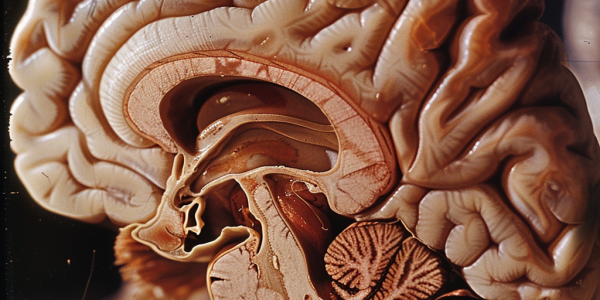Vocal Changes May Signal Early Detection of Parkinson’s Disease
Recent research reveals that vocal changes may serve as an early indicator of Parkinson’s disease, potentially allowing for earlier diagnosis and intervention. Conducted by neuroscientists at the University of Arizona, the study highlights the connection between vocal symptoms and the alpha-synuclein gene, suggesting that monitoring voice alterations could revolutionize Parkinson’s detection and treatment strategies.
Breakthrough Research Uncovers Early Developmental Links to Spinal Muscular Atrophy
Researchers from DZNE and Dresden University of Technology have made groundbreaking discoveries about spinal muscular atrophy (SMA), linking the disease to embryonic development abnormalities. Published in Cell Reports Medicine, their study emphasizes the need for early intervention and offers hope for new therapeutic strategies targeting SMA from its origins, potentially transforming treatment approaches for this debilitating neurological condition.
World Brain Day 2024 to Focus on ‘Brain Health and Prevention’
Join the World Federation of Neurology on July 22, 2024, for the 11th annual World Brain Day, themed ‘Brain Health and Prevention.’ This global initiative aims to unite neurologists, patients, and advocates to address neurological disease risk factors and promote early detection. Participate in a free public webinar featuring experts from WHO and the World Stroke Organization. Learn about preventive measures and the importance of brain health in combating neurological disorders affecting billions worldwide.
Potential Breakthrough in PSP Diagnosis
Researchers at the University of California, San Francisco have identified a pattern in the spinal fluid of Progressive Supranuclear Palsy (PSP) patients, offering hope for a diagnostic test and targeted therapies. Early diagnosis is crucial as PSP progresses rapidly and current treatments are ineffective. Utilizing high-throughput technology for protein analysis, the study may revolutionize PSP diagnosis and treatment.
Study Reveals Alarming Increase in Mortality Rates from Neurological Diseases in Young Adults
A recent preprint study by Phinance Technologies reveals a concerning increase in mortality rates among individuals under 44 due to neurological diseases. The study highlights a significant rise in deaths linked to conditions like Guillain-Barré syndrome and acute disseminated encephalomyelitis, signaling a departure from historical trends. This alarming trend underscores the need for further investigation and proactive measures to address this growing public health concern.
NeurologyLive® Brain Games Weekly Quiz Focuses on Primary Progressive Aphasia
Test your knowledge on primary progressive aphasia (PPA) with NeurologyLive® Brain Games weekly quiz series. Learn about the distinct features, brain regions affected, and subtypes of PPA. Join the neurology community in discussing and sharing quiz results to enhance learning and knowledge-sharing.
WHO Calls for Urgent Action on Rising Prevalence of Neurological Conditions Worldwide
The World Health Organization (WHO) has called for urgent action to address the rising prevalence of neurological conditions worldwide. A recent study published by The Lancet Neurology revealed that in 2021, over 3 billion individuals globally were living with a neurological condition. The study emphasized the urgent need to scale up targeted interventions to ensure that individuals living with neurological conditions can access quality care, treatment, and rehabilitation. It identified the top ten neurological conditions contributing to health loss in 2021, including stroke, neonatal encephalopathy, migraine, dementia, diabetic neuropathy, meningitis, epilepsy, neurological complications from preterm birth, autism spectrum disorder, and nervous system cancers.
Global Burden of Neurological Conditions Revealed in Recent Lancet Study
A recent study by The Lancet Neurology reveals that over 1 in 3 people worldwide are affected by neurological conditions, making it the leading cause of illness and disability globally. The World Health Organization highlights the significant impact on global health, emphasizing the urgent need for targeted interventions to improve access to quality care, treatment, and rehabilitation. The study identifies the top ten neurological conditions contributing to health loss, underscoring the need for comprehensive strategies to address the growing impact on global health.








